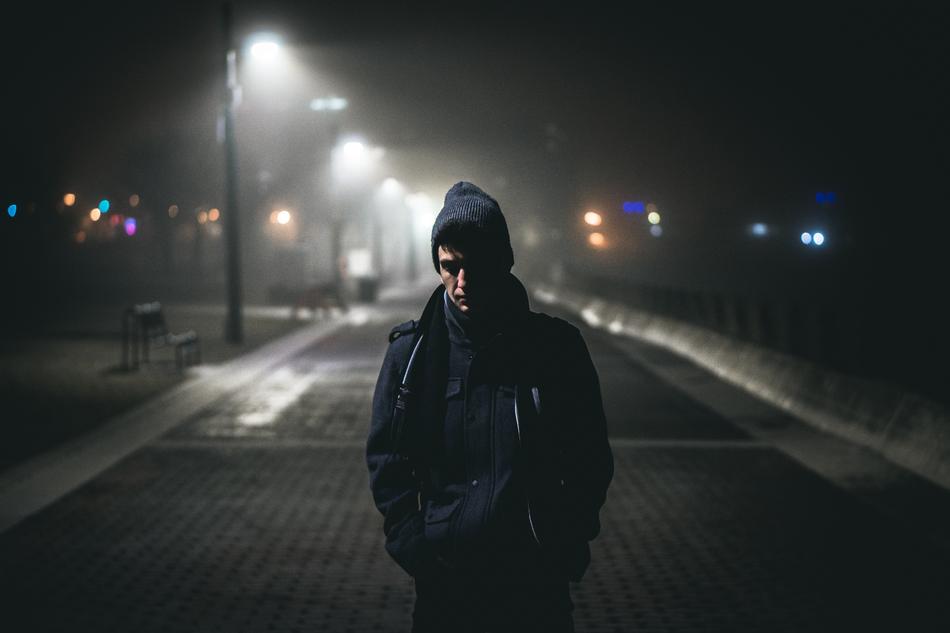Loneliness in a Connected Time

50 years ago, sending a message to Australia would have involved a 6-month round boat trip. The likelihood of your letter reaching its destination was low, courtesy of the Royal Mail. Now, it is easier than ever to stay connected with people from all over the world. Social media platforms, messaging apps, and other digital tools make it possible for us to communicate with anyone, anywhere, at any time. With just a click of a button, you can be plugged into the grid and be talking face to face with someone who lives on the other side of the world. However, despite this constant connectivity, reports of loneliness have continued to rise over the 21st century.
An Isolated Society
In today's world, individuals are becoming increasingly isolated from one another. Most people work outside the home, children are educated by strangers, and families are separated from the wider community. Additionally, the rate of divorce is on the rise, closing in on 50%. People are waiting longer to get married, if at all, and there has been a steep rise in the number of people living alone. All of this is contributing to the wider problem of loneliness.

In Japan, there is an entire sub-population known as the hikikomori - more than a million people living in isolation. They don't finish their education, don't work, and don't participate in any social activities. In other words, they experience the most extreme case of loneliness. This leads to a deeply ingrained socio-cultural mental health problem that can stay with people for many years.
War correspondent Sebastian Junger has highlighted the effects of loneliness among servicemen, where PTSD rates are at an all-time high. Soldiers returning from combat often struggle with the isolation of civilian life, as the close bonds they formed with their unit during combat are not present in modern-day society. The sense of belonging and camaraderie that soldiers experience after intense combat is hard to replicate in civilian life, leaving many veterans feeling disconnected and alone. Meaning they don't have the psychological help needed to heal their mental scars.
Impacts
Loneliness is a significant contributor to the current mental health crisis. Loneliness is not just the feeling of being alone, but it's a feeling of being disconnected from the world around you. This has a detrimental effect on our mental and physical health. Studies have shown that people who are more lonely are more likely to suffer from depression and anxiety, leading to a release of the stress hormone cortisol. This causes higher blood pressure and weakens the immune system.
Social Connections
To solve this phenomenon, we need to have a better understanding of the impact that social connections have on our lives. Social connections play a vital role in shaping our lives, in a way we have only just started to understand. Research has shown that the people we spend the most time with significantly impact our behaviour, intelligence, and physical health. If you are lucky enough to have a close group of supportive friends, you are more likely to exercise, eat healthy, and lead a more meaningful life. However, the opposite is also true. If you are around people that bring you down and don't have your interests at heart, it will have a detrimental impact on your life, leading you to pick up bad habits and living a life void of purpose. Loneliness deprives us of these vital connections, leaving us lost in a confusing world.
A Community to Rely on

Community also plays a crucial role in our lives as it provides a sense of belonging and purpose. Belonging to a community gives individuals a sense of identity and a sense of purpose. Additionally, being part of a community reduces stress as it gives you a strong support network, allowing you to always have someone to rely on. Once we find ourselves truly alone without a community to lean on, then we are part of a new social poverty, which can be demoralizing and debilitating. We are not made to live alone. The individuality of modern life has the potential to become dangerous because it makes us vulnerable to what lies ahead. When the status quo changes people who are members of a connected group have a huge advantage. For many people, a feeling of community is found in religion, which often brings people with shared values closer together. Religion tends to have a strong communal dimension offering many opportunities to connect to the wider community through shared traditions and festivities, strengthening the community throughout the generations.
The Takeaway Message
Social connections, community and a sense of belonging play a vital role in shaping our lives and reducing stress. Whether it is through religion, socializing with friends, or even a weekly game of 5-a-side it is crucial that we prioritize these connections, to combat loneliness and work towards building a stronger and more supportive community for all.